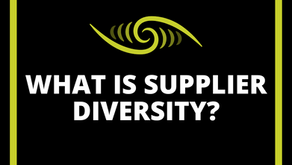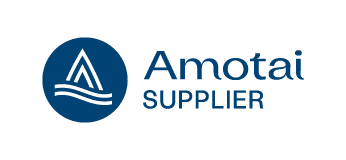Puna Awarau or Supplier diversity is a global practice to enable minority-owned businesses strategically and intentionally to be engaged in business-to-business (B2B) supply chains.
The aim is to uplift marginalised communities excluded from the economic success of the country, by intentionally looking for ways to buy goods and services from minority owned businesses.
Here in Aotearoa, we specifically focus on Māori and Pasifika businesses. A Māori business is a business that has at least 50% shareholdings held by someone of Māori descent. A Pasifika business is a business that has at least 50% shareholdings held by someone of Indigenous Pasifika whakapapa.
Let's talk numbers:
• Māori makeup 17.1% of the Aotearoa population.
• Pasifika makeup 8.1% of the Aotearoa population.
• Together that's just over 25% of our total population!
Yet Māori only represent 6% of all NZ businesses and 7% of NZ’s sole traders. The numbers are even more dire for Pasifika. The stats show Māori and Pasifika are underrepresented in business ownership, supply chains nationwide and consequently intergenerational wealth creation - that’s why supplier diversity is so important.
Many organisations we work with, struggle to get even 1-2% of their spend with Māori AND Pasifika businesses combined.
Clearly ‘business as usual’ does not enable Māori and Pasifika businesses to thrive. So how do we enable transformational change? A thriving Māori and Pasifika business sector means a thriving Māori and Pasifika economy, which ultimately means a thriving Aotearoa.
Supplier diversity can help shift the dial!
As mentioned, it requires organisations and businesses to be strategic and intentional about enabling Māori and Pasifika businesses to engage in the economy. What all the research points to, is that supporting Māori and Pasifika businesses powers up NZ’s entire economy - creating benefits for all.
Supplier Diversity in practice
As a business or organisation, here are simple steps you can take to begin your supplier diversity journey:
Look at your current spend with Māori and Pasifika businesses
Build relationships with Māori and Pasifika businesses
Invite Māori and Pasifika businesses to bid for work with your organisation
Look at your procurement processes and the barriers that exist
Explore procurement tactics like closed tenders to Māori and Pasifika businesses
Get expert advice to support your procurement activity In practice, supplier diversity can take shape in many forms.
You can diversify your Organisation’s spend across all categories from IT to civil construction to communications.
Supplier diversity knows no limits in terms of industry, contract size or duration. Here are two examples of what success looks like to help get you thinking about the possibilities:
Carpark Upgrade: Makaurau Marae is a great example of supplier diversity in action. This project was a carpark upgrade at a Marae, which was a no-brainer for supplier diversity. Not only did the entire project deliver positive social and environmental outcomes for Māori but through an innovative procurement approach, the contract for the civil work was awarded to a 100% Māori-owned business.
Cleaning Contract: Supplier diversity can be achieved through any contracted Services, not just those on culturally significant sites. Eco Pristine Clean is a great example of this. Eco Pristine Clean were awarded a site cleaning contract which has consequently enabled their Business to grow and employ more staff.
In both these examples, there was a clear intention to engage with a Māori Business. This is what is required to enable supplier diversity and create social impact. Your organisation or business can use its spend to create real change in Aotearoa.
Mā tō rourou, mā taku rourou ka ora ai te Iwi.
With your food basket and my food basket, the people will thrive.
This whakatauki refers to working together for the betterment of the people.
DOWNLOAD A COPY OF THIS ARTICLE.


